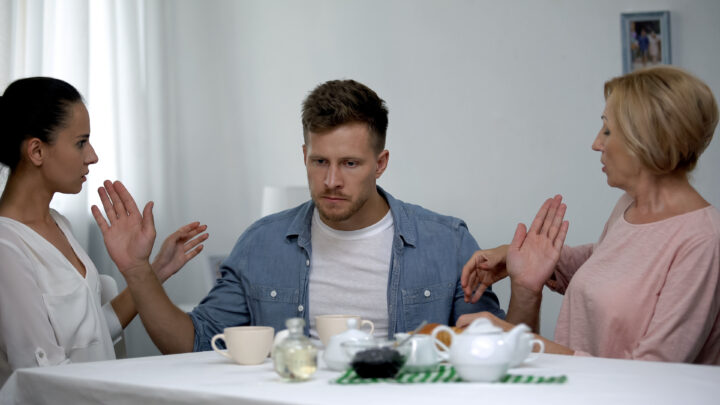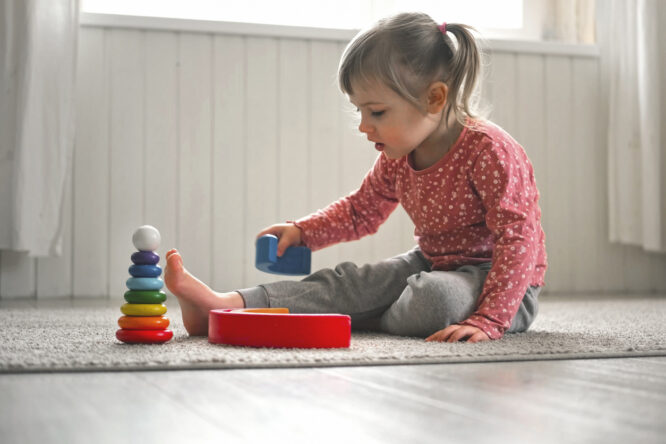Families often lean on one person to keep the peace—the one who smooths things over, de-escalates tension, and carries everyone else’s emotional weight.

That role might sound admirable, but it comes with a hidden cost. When you’re constantly absorbing conflict and making yourself small for the sake of harmony, it can quietly shape your sense of safety, identity, and self-worth. Here’s what that kind of role really does to a person, and why it often leaves deeper scars than anyone realises.
1. You learn to prioritise everyone else’s comfort over your own.

From an early age, the message becomes clear: your needs take a back seat if they might upset someone else. You get praised for being easygoing or mature, but really, you’ve learned to silence your own discomfort just to keep the peace.
As time goes on, self-abandonment becomes automatic. You stop checking in with how you actually feel and start managing everyone else’s emotions instead. That habit is hard to unlearn, and it often follows you into adulthood, relationships, and work.
2. You become hyper-aware of everyone’s moods.

Peacemakers tend to develop a kind of emotional radar. You can sense tension before anyone says a word, and you start adjusting your behaviour to prevent it from boiling over. It’s a survival strategy, sure, but it’s exhausting. That constant scanning creates anxiety that doesn’t switch off, even in calm environments. Your nervous system stays on high alert, and you may not even realise how much energy goes into managing the emotional weather around you.
3. You carry guilt that doesn’t belong to you.

When you’re the one who holds things together, it’s easy to feel responsible when things fall apart. Even if the conflict has nothing to do with you, you feel like it’s somehow your job to fix it, or your failure if you can’t. That misplaced guilt becomes a heavy emotional load. It keeps you trapped in situations that hurt, simply because walking away feels like letting someone down. Your loyalty comes at a cost to your own peace.
4. Your needs start to feel like a burden.

Being the peacemaker often means becoming low-maintenance by default. You stop asking for help, stop expressing frustration, and learn to deal with things on your own. At first, it feels strong, but eventually, it becomes lonely. When you finally do speak up, it might come with shame or second-guessing. You’ve internalised the belief that your needs are disruptive, and unlearning that can be one of the hardest parts of healing.
5. You feel responsible for fixing things that aren’t yours to fix.

Even outside the family dynamic, peacemakers often step into roles they were never meant to carry. You try to hold other people’s emotions, solve their problems, and keep everyone calm, even when it burns you out. That over-functioning can become part of your identity. You feel valuable when you’re useful. Letting go of that fixer role can feel like letting go of who you’ve always been, even if it’s slowly draining you.
6. You struggle to express anger without guilt.

When your role has always been to de-escalate conflict, expressing your own anger can feel terrifying. You worry about causing tension, hurting someone, or making things worse, even when your feelings are completely valid. This can lead to suppressed resentment and emotional shutdown. You learn to swallow your rage until it either leaks out in indirect ways or eats away at your self-worth from the inside.
7. You tolerate dysfunction because it feels familiar.

When you grow up keeping the peace in a chaotic or emotionally volatile environment, that becomes your baseline. As an adult, you may find yourself tolerating toxic dynamics simply because they feel normal. You might even feel strangely calm in unhealthy situations because your nervous system is used to the chaos. That familiarity can make it hard to recognise when you deserve better, or even believe that something healthier is possible.
8. You rarely feel seen for who you are.

People often see the helpful version of you, the one who’s calm, capable, and always there for everyone else. But the parts of you that feel messy, sad, angry, or exhausted? Those often get buried deep. Being the peacemaker means you’re constantly performing emotional stability, even when you don’t feel it. When no one notices what’s behind the performance, you start to wonder if anyone really sees you at all.
9. You become the emotional dumping ground.

In many families, the peacemaker becomes the one everyone vents to, leans on, or confides in. You absorb other people’s emotional chaos without boundaries—and rarely get the same support in return. That imbalance leaves you drained and resentful, but you feel trapped because you don’t want to be seen as selfish. The cost of being “the strong one” is that no one thinks to ask if you’re okay.
10. You’re scared of being the reason someone’s upset.

One of the hardest parts of healing from this role is learning to accept that conflict doesn’t mean you’re bad. However, when you’ve spent your life smoothing things over, the idea of disappointing someone can feel unbearable. That fear makes it hard to set boundaries, say no, or be honest about your limits. You equate other people’s discomfort with failure, even when what you’re doing is healthy and necessary.
11. You confuse peacekeeping with being loved.

If being helpful, calm, and agreeable got you attention growing up, it’s easy to link those traits with being lovable. Of course, that connection teaches you that love has to be earned, not just felt and freely given. In adult relationships, this can show up as over-giving, people-pleasing, or avoiding conflict just to feel safe. It’s hard to trust that someone could love you without needing you to constantly keep things stable.
12. You miss out on your own emotions.

When your emotional energy goes into managing other people, your own feelings often get pushed to the side. You might not even know what you’re feeling until it overwhelms you, and even then, you might struggle to name it. Learning to check in with yourself can feel awkward at first. However, it’s also what starts the process of reclaiming your emotional world—one that isn’t defined by other people’s needs.
13. You feel disconnected from your own wants.

Peacemakers often get so used to asking, “What does everyone else need?” that they stop asking, “What do I want?” That question might even feel uncomfortable or indulgent, like you don’t deserve to ask it at all. Eventually, that disconnection creates a numbness or emptiness that’s hard to shake. Rebuilding that sense of self—what you like, what you crave, what brings you joy—is part of undoing the damage.
14. You’re exhausted but don’t feel like you have permission to rest.

When your role has always been about holding it together, the idea of stopping—even briefly—can feel unsafe. You’ve been wired to believe that rest leads to collapse, or that everything will fall apart without you. Of course, you weren’t meant to be the emotional glue for everyone. Giving yourself permission to pause, to reset, to care for yourself without guilt isn’t weakness—it’s survival.
15. You carry emotional trauma no one ever acknowledged.

Being the family peacemaker is often framed as a personality trait, but it’s usually a trauma response. You stepped into that role because you had to. Because someone else wasn’t showing up the way they should have. That emotional weight adds up over the years, and even if no one else sees the scars, they’re there. Healing means recognising that just because you kept things calm on the outside doesn’t mean it didn’t hurt on the inside.




